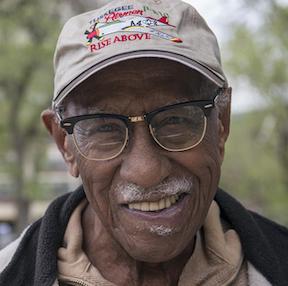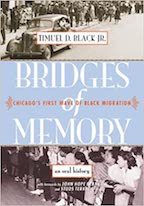 Timuel Black, a noted American historian, educator, and civil rights activist, died on October 13 at his home in the Hyde Park neighborhood of Chicago. He was 102 years old.
Timuel Black, a noted American historian, educator, and civil rights activist, died on October 13 at his home in the Hyde Park neighborhood of Chicago. He was 102 years old.
A native of Birmingham, Alabama, he and his family moved to Chicago in 1919. He served in the U.S. Army during World War II earning several medals for bravery.
After the war, Black attended Roosevelt University in Chicago for his bachelor’s degree and then received his master’s degree in 1954 from the University of Chicago. He studied sociology and history, learning from renowned scholar Allison Davis, the first tenured African American professor at the University of Chicago. He then taught at high schools in Gary, Indiana, and Chicago. Black was a key adviser to Harold Washington, the first Black mayor of Chicago, Carol Mosely-Brown, the first African American woman to be elected to the U.S. Senate, and later to the young Barack Obama who began his political career on Chicago’s South Side.
 Black interviewed hundreds of Chicago residents for his oral history, Bridges of Memory: Chicago’s First Wave of Black Migration (Northwestern University Press, 2003). He also authored the memoir Sacred Ground: The Chicago Streets of Timuel Black (Northwestern University Press, 2019).
Black interviewed hundreds of Chicago residents for his oral history, Bridges of Memory: Chicago’s First Wave of Black Migration (Northwestern University Press, 2003). He also authored the memoir Sacred Ground: The Chicago Streets of Timuel Black (Northwestern University Press, 2019).
In 2012, the University of Chicago awarded Black the William Benton Medal for Distinguished Public Service, honoring him as “one of the most influential civil rights leaders in Chicago history” and “a national voice in the cause of American justice.”
“Like many others in the University of Chicago community, I was privileged to know Timuel Black,” said Robert J. Zimmer, chancellor of the University of Chicago. “He was a devoted student and teacher of the history of the South Side, and he lived that history over a remarkable span of 102 years, during which he helped to bring about profound changes. We are grateful for the wisdom that is his enduring gift to the city he loved.”










